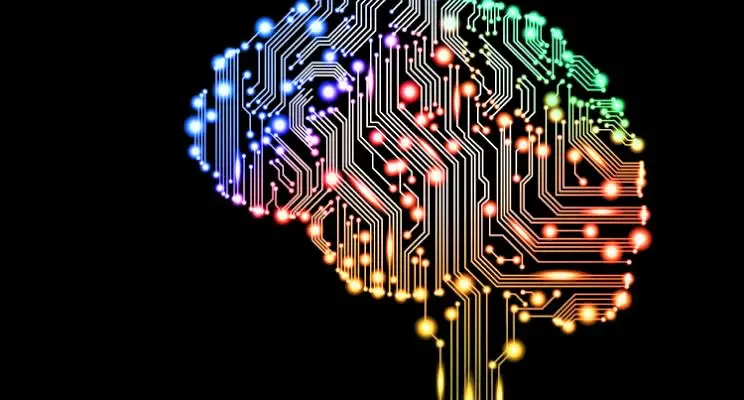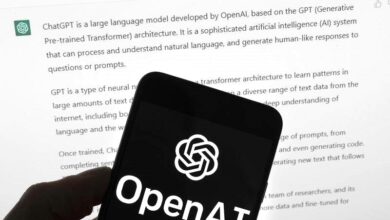18 Examples of Artificial Intelligence You’re Using in Daily Life in 2023
Top 18 Artificial Intelligence (AI) Applications in 2023

Artificial Intelligence (AI) has rapidly evolved and integrated into various aspects of our lives, revolutionizing industries and transforming the way we interact with technology. As we step into 2023, AI continues to push boundaries and open new horizons across multiple domains. From healthcare to finance, entertainment to manufacturing, AI is driving innovation and delivering unprecedented capabilities. In this article, we explore the top 18 AI applications that are shaping the landscape in 2023.

Healthcare Diagnostics and Treatment
AI-powered diagnostic tools have become instrumental in accurately detecting diseases, analyzing medical images, and predicting patient outcomes. Machine learning algorithms are capable of identifying patterns in vast amounts of medical data, enabling early detection of conditions and providing personalized treatment plans.
Autonomous Vehicles
Self-driving cars are no longer a distant dream. AI algorithms are being used to power autonomous vehicles, enabling them to perceive their surroundings, make real-time decisions, and navigate safely on the roads. This technology has the potential to revolutionize transportation and reduce accidents.
Natural Language Processing (NLP)
NLP technology has reached new heights in 2023. Chatbots, virtual assistants, and language translation tools have become more sophisticated, enabling seamless communication between humans and machines. NLP is also being used for sentiment analysis and content generation.
Financial Services
AI is transforming the financial sector by enhancing fraud detection, algorithmic trading, credit risk assessment, and customer service. AI-powered chatbots and virtual assistants are providing personalized financial advice to customers, while predictive analytics is helping financial institutions make informed investment decisions.
Entertainment and Gaming
The entertainment industry is leveraging AI to create immersive experiences. AI-driven content recommendation systems suggest movies, music, and TV shows tailored to individual preferences. In gaming, AI is used to develop intelligent non-player characters (NPCs) and enhance gameplay realism.
Manufacturing and Robotics
AI-driven robots are optimizing manufacturing processes by increasing efficiency and precision. These robots can perform tasks ranging from assembling products to quality control, reducing human error and minimizing production costs.
Retail and Customer Experience
Retailers are using AI to provide personalized shopping experiences, optimize inventory management, and enhance customer service. AI-powered recommendation systems analyze customer behavior to suggest products, leading to increased sales and customer satisfaction.
Cybersecurity
As cyber threats become more sophisticated, AI is playing a critical role in identifying and mitigating security breaches. Machine learning algorithms can detect unusual patterns in network traffic, predict potential attacks, and respond in real-time to protect sensitive data.
Agriculture
AI is revolutionizing agriculture by enabling precision farming. Drones equipped with AI-powered sensors can monitor crops, assess soil conditions, and optimize irrigation and fertilizer usage, leading to higher yields and sustainable farming practices.
Energy Management
Smart grids powered by AI algorithms are optimizing energy distribution and consumption. These systems analyze data from sensors and meters to balance supply and demand, reduce energy wastage, and enhance the overall efficiency of power grids.
Drug Discovery and Development
AI is expediting drug discovery by simulating molecular interactions and predicting the efficacy of potential drugs. This accelerates the research process and holds the promise of finding novel treatments for diseases more efficiently.
Environmental Monitoring
AI-powered sensors and data analysis tools are being used to monitor environmental factors such as air quality, water pollution, and deforestation. This data-driven approach helps in early detection of environmental issues and supports conservation efforts.
Education and E-Learning
AI is reshaping the education sector by providing personalized learning experiences. Adaptive learning platforms use AI algorithms to assess students’ strengths and weaknesses and tailor educational content accordingly, promoting more effective learning.
Supply Chain Optimization
AI is optimizing supply chain operations by predicting demand, optimizing inventory levels, and streamlining logistics. This results in reduced costs, improved delivery times and enhanced overall efficiency.
Human Resources Management
AI is transforming HR processes by automating repetitive tasks such as resume screening, candidate sourcing, and employee onboarding. AI-powered tools also assist in employee performance evaluation and sentiment analysis.
Real Estate
AI-powered tools are revolutionizing the real estate industry by analyzing property data, predicting market trends, and assisting in property valuation. Virtual property tours and AI-driven chatbots enhance the buying and selling experience.
Language Translation
AI-powered language translation tools have become more accurate and reliable, breaking down language barriers and facilitating global communication and collaboration.
Climate Modeling
AI is enhancing climate modeling by analyzing vast amounts of climate data and simulating complex climate systems. This enables scientists to make more accurate predictions about climate change impacts and develop strategies for mitigation.

Conclusion
In conclusion, AI’s impact in 2023 spans across a diverse range of applications, revolutionizing industries, and enhancing various aspects of our lives. As AI continues to advance, it holds the potential to drive even greater innovation and reshape the way we interact with the world around us. From healthcare to entertainment, from finance to manufacturing, AI is truly a transformative force that is here to stay.
Frequently Asked Questions
What is Artificial Intelligence (AI)?
Artificial Intelligence, commonly known as AI, refers to the development of computer systems capable of performing tasks that typically require human intelligence. These tasks include problem-solving, learning from experience, understanding natural language, and making decisions.
How is AI being used in healthcare?
AI is being used in healthcare for various purposes, including medical image analysis, disease diagnosis, personalized treatment plans, drug discovery, and patient data management. AI algorithms analyze large volumes of medical data to assist doctors in making accurate diagnoses and improving patient outcomes.
What are some examples of AI in everyday life?
AI is present in many aspects of our daily lives, such as virtual assistants (e.g., Siri, Alexa), recommendation systems (e.g., Netflix recommendations), language translation apps, and even autonomous vacuum cleaners like Roomba. AI’s influence extends to industries like finance, entertainment, transportation, and more.
How is AI advancing education?
AI is transforming education through adaptive learning platforms, which use AI algorithms to tailor educational content to individual student’s needs and learning styles. Additionally, AI-powered tools assist in grading, performance analysis, and even creating personalized study plans.
Can AI help in environmental conservation?
Yes, AI is playing a crucial role in environmental conservation. It is used for environmental monitoring through sensors that track pollution levels, deforestation, and wildlife movements. AI-driven insights contribute to better understanding and management of ecosystems.
What impact does AI have on job roles?
AI has both created and transformed job roles. While some routine and repetitive tasks may be automated by AI, it also generates opportunities in AI development, data analysis, AI ethics, and more. Human-AI collaboration is becoming more prevalent, enhancing productivity and creativity.
How does AI enhance cybersecurity?
AI enhances cybersecurity by rapidly detecting and responding to cyber threats. Machine learning algorithms analyze network traffic patterns to identify anomalies, predict potential attacks, and mitigate breaches in real-time, safeguarding sensitive data and systems.
What is the role of AI in autonomous vehicles?
AI powers the technology behind autonomous vehicles, enabling them to navigate roads, interpret traffic signals, detect obstacles, and make real-time driving decisions. This technology aims to make transportation safer and more efficient.
How is AI used in the entertainment industry?
In the entertainment industry, AI is used for content recommendation, creating personalized playlists, optimizing streaming quality, and developing realistic graphics in video games. AI-driven algorithms enhance user experiences by tailoring content to individual preferences.
How is AI contributing to climate modeling?
AI is improving climate modeling by analyzing vast amounts of climate data, simulating complex climate systems, and making accurate predictions about climate change impacts. This assists scientists and policymakers in developing effective strategies for climate change mitigation.
Is AI replacing human creativity?
AI complements human creativity by aiding in tasks that require data analysis, pattern recognition, and optimization. While AI can generate content such as art, music, and literature, it is often used as a tool to inspire and support human creative endeavors.
What are the ethical concerns related to AI?
Ethical concerns in AI include issues related to bias in algorithms, privacy violations, job displacement, and the potential for AI to be used in harmful ways. Ensuring responsible AI development and usage is essential to address these concerns.
How can businesses implement AI?
Businesses can implement AI by identifying areas where AI can add value, collecting and preparing relevant data, selecting suitable AI algorithms, and developing or integrating AI-powered solutions. Collaborating with AI experts and staying informed about AI trends is also crucial.
Is AI research still ongoing?
Yes, AI research is a rapidly evolving field with ongoing developments and breakthroughs. Researchers are continuously exploring new algorithms, techniques, and applications to push the boundaries of AI capabilities.
How can individuals learn more about AI?
Individuals interested in learning more about AI can take online courses, attend workshops and conferences, read research papers and books on AI, and engage with AI communities and forums. Many universities and online platforms offer AI-related courses for learners at various levels.




